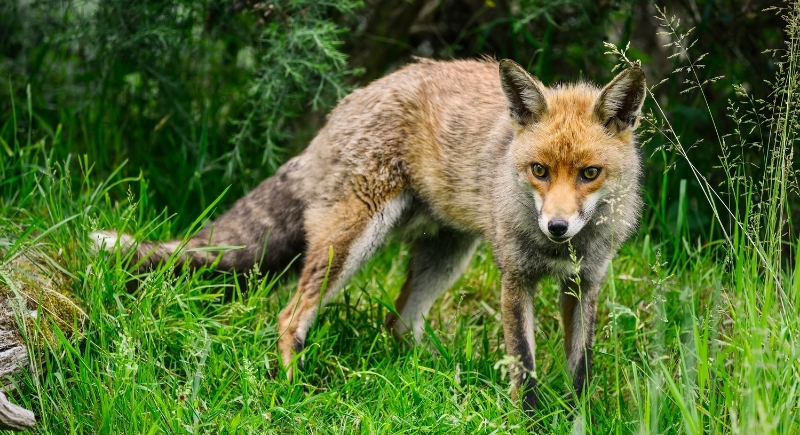Male and Female Foxes Have Drastically Different Ways of Dealing with a Lost Mate
When foxes form a pair, the bond usually lasts beyond just a single breeding season. They raise young together, share a territory, and rely on each other to survive. But things tend to change dramatically when one of them ceases to exist. The male and female don’t handle loss in the same way at all. Where one seems to pause life completely, the other moves forward almost immediately.
Males Often Remain Alone After Loss

Image via Canva/Matthew Gibson
It is the male counterparts who prefer not to search for a new mate after their mate is lost. They mostly stay within their territory and carry on with their usual patterns. If there are young kits in the den, the male often steps in as the sole caretaker. He hunts, guards the area, and provides food for the litter.
Researchers have documented cases where males raised entire litters on their own. This behavior appears more often in regions where territory matters more than finding a new mate. A male that leaves to look for a partner could lose the ground he already controls.
Females Usually Re-Pair for Survival

Image via pixabay/JackknifeS
On the other hand, female foxes usually seek a new mate soon after the loss of their partner. This isn’t about moving on emotionally, but about securing resources to support her next litter. During pregnancy and while raising young, the female typically stays close to the den. Meanwhile, the male provides food and protects the area.
If that support is lacking, her ability to care for the young also decreases. Pairing with another male helps her continue her reproductive cycle and gives future kits a better chance of survival. This attitude has been observed frequently in both rural and urban fox populations.
Unpaired Males Sometimes Step in as Foster Parents
Wildlife researchers have also revealed another interesting thing about bachelor foxes. When there is no one to take care of orphaned litters, they step in as foster parents to take over care of them. Wildlife researchers have seen these unpaired males feed, guard, and help raise kits that weren’t biologically theirs.
Such actions stand out because they’re rare in the broader animal kingdom. It also shows that fox social roles can be flexible under pressure.
As a result, foster parenting by bachelor males helps stabilize the fox group when a parent is eliminated during a critical phase of the breeding season. The new male may stay involved until the kits mature and leave the den.
Territory Stability Influences Mating Behavior

Image via Getty Images/Magda Jentgen
What most people don’t know is that the way foxes respond to loss sometimes depends on their location. In areas with low population density, males are less likely to encounter available females. They prefer to remain single and continue to occupy the same territory. In regions with higher fox populations, the chance of re-pairing increases for both genders.
Still, males rarely leave their territory to seek a new partner, while females are more likely to form a new bond if an available male enters their range. The need to maintain access to food, shelter, and safe ground influences these patterns more than reproductive instinct alone.